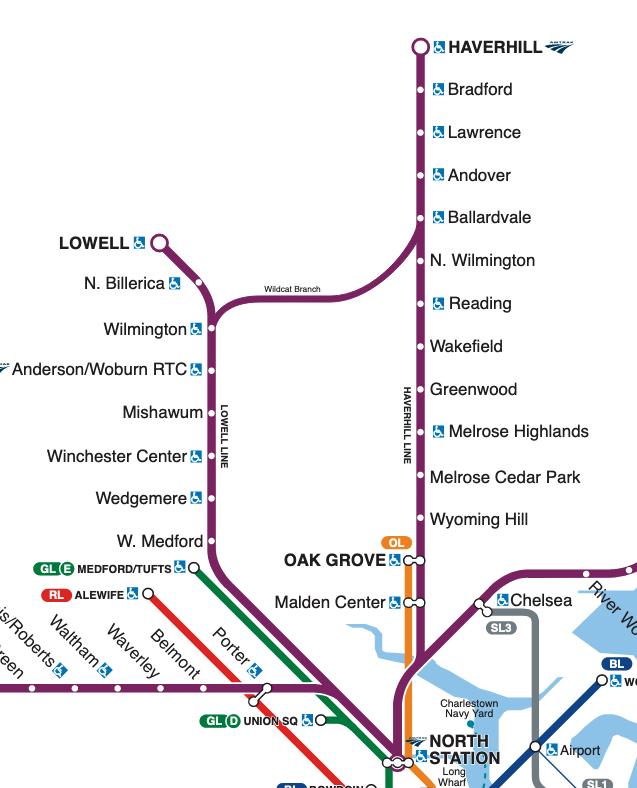Commuters across the Boston metropolitan area are facing renewed frustration as the long-anticipated launch of the new MBTA train line has been delayed yet again. Originally scheduled to begin service this month, the setback has left thousands of daily riders grappling with extended travel times and uncertainty. Officials cite unexpected technical issues and safety inspections as the primary causes of the holdup, but for many, the delay underscores ongoing challenges in the region’s public transit system. This article examines the factors behind the postponement and its impact on the commuting public.
Table of Contents
- New MBTA Train Line Delay Causes Major Disruptions for Daily Commuters
- Technical Challenges and Safety Concerns Behind the Postponement
- Community Response Highlights Growing Demand for Transparent Communication
- Expert Recommendations for Minimizing Future Delays and Improving Service Reliability
- Concluding Remarks
New MBTA Train Line Delay Causes Major Disruptions for Daily Commuters
Commuters on Boston’s MBTA network faced significant challenges this week as an unforeseen delay in the launch of the new train line resulted in severe schedule disruptions. Many daily riders reported extended travel times, overcrowded platforms, and last-minute service adjustments that left them scrambling for alternative routes. The MBTA attributed the holdup to technical issues with signal installation, which has yet to be resolved despite round-the-clock efforts by maintenance crews.
Key impacts of the delay include:
- Increased wait times exceeding 30 minutes during peak hours
- Reduced train frequency along affected corridors
- Overcapacity on several connecting bus routes
- Confused and frustrated passengers expressing concern on social media
Officials have promised regular updates and urged riders to check service alerts before traveling. Meanwhile, many commuters have adapted by carpooling, biking, or working remotely where possible, highlighting the broader ripple effect such transit setbacks have on daily life and the local economy.
Technical Challenges and Safety Concerns Behind the Postponement
The delay in launching the new MBTA train line has been primarily attributed to a series of unforeseen technical obstacles that have emerged during the final testing phases. Engineers discovered critical issues with the signaling system, which is integral to maintaining safe train intervals and preventing collisions. Additionally, integration problems between the new automated controls and existing infrastructure have caused significant operational complications. These technical difficulties demanded an extensive review and recalibration process, halting progress and pushing the project timeline back significantly.
Beyond technological hurdles, safety remains the paramount concern influencing the postponement decision. Authorities cited the need to rigorously address:
- Ensuring reliable emergency response protocols amid new system features
- Conducting comprehensive staff training on advanced safety systems
- Validating passenger evacuation procedures under various emergency scenarios
Only after resolving these issues will the MBTA be able to certify that the train line meets all federal safety standards. While the delay has been a source of frustration for commuters, the MBTA insists that prioritizing passenger protection over speed ensures long-term operational reliability and public trust.
Community Response Highlights Growing Demand for Transparent Communication
Local commuters took to social media and neighborhood forums expressing mounting frustration over the lack of clear information regarding the MBTA train line delay. Many voices pointed to the ongoing communication gaps as a deeper reflection of systemic issues within the transit authority’s customer engagement strategy. Users highlighted the importance of receiving timely updates to reorganize their daily schedules, especially during peak hours when alternative travel options are limited.
Key community demands include:
- Regular, real-time updates via multiple channels, including mobile alerts and station announcements.
- Enhanced visibility of project timelines, with straightforward explanations of causes behind delays.
- Proactive outreach initiatives to engage directly with affected riders and gather feedback.
Expert Recommendations for Minimizing Future Delays and Improving Service Reliability
Transportation experts emphasize the importance of proactive infrastructure investment and advanced technology integration to prevent recurring disruptions. Prioritizing routine inspections and predictive maintenance through real-time data analytics can help detect potential issues early, reducing the risk of unexpected breakdowns. Additionally, adopting a comprehensive communication strategy involving timely updates across multiple platforms is essential for maintaining commuter trust and managing expectations during service interruptions.
Key recommendations include:
- Leveraging AI-powered monitoring systems to anticipate equipment failures before they occur.
- Increasing collaboration with local municipalities to streamline construction schedules and minimize conflicts.
- Enhancing staff training programs focused on rapid response and efficient problem-solving during emergencies.
- Investing in passenger amenities and alternative transit options to mitigate the impact of delays.
Implementing these measures can significantly improve the MBTA’s operational resilience and restore confidence among daily commuters, ultimately fostering a more reliable and user-friendly transit experience.
Concluding Remarks
As delays continue to impact the launch of the new MBTA train line, commuters are left grappling with uncertainty and disrupted routines. While officials vow to address the setbacks and expedite progress, the growing frustration among daily riders underscores the challenges facing the region’s transportation infrastructure. In the coming weeks, all eyes will be on the MBTA to deliver clear communication and timely solutions, as the demand for reliable transit options remains more urgent than ever.

